Fighting food and economic insecurity
815 million people are still suffering from hunger. That’s 1 in 10 people worldwide. The causes can be multiple: conflicts, natural disasters and increases in world food prices are just some. SOLIDARITÉS INTERNATIONAL works with those vulnerable to food insecurity to provide them with rapid, sustainable access to quality food in sufficient quantities.
Emergency food access
43
million people threatened by famine¹
1 in 10
people in the world
do not have enough to eat²
815
million people
underfed
3.1
million children
die every year
of undernutrition
There are many different causes of malnutrition: conflicts leading to displacement, natural disasters and increases in world food prices.
Julie Mayans, Food Security Advisor for SOLIDARITÉS INTERNATIONAL
In an acute crisis situation, the unavailability of or lack of access to food can result in people becoming malnourished, particularly children under 5 and pregnant and breastfeeding women, increasing the risk of death.
reviVING the economy
In order to prevent malnutrition and to save lives, SOLIDARITÉS INTERNATIONAL works with those affected to provide them with rapid access to food. When markets cease to function properly, we distribute basic food products (cereals, pulses, oil, salt and sugar) to the most vulnerable. When food is available in markets accessible to those affected, we provide them with the necessary financial means to buy them – either vouchers or cash. This approach helps to reinvigorate the local economy, while leaving the dignity of those affected intact, and allowing them to choose their priorities in terms of food.
In the case of physical access problems (destroyed bridges, damaged roads, etc.), SOLIDARITÉS INTERNATIONAL focuses its efforts on rehabilitating the affected infrastructures.
Protecting livelihoods and reviving the economy
200
million people
are jobless
More than 700
million people live
on less than $2.15 a day³
61%
of the poor
are women⁴
2.5
billion people have
no bank account⁵
Providing sustainable access to food involves safeguarding livelihoods. We assist with food production and access to the income required to meet the needs of the most destitute, so that they can lead a healthy, active life on their own.
Adrienne Daudet, Food Security and Livelihoods Advisor for SOLIDARITÉS INTERNATIONAL
To help people regain their autonomy as quickly as possible, SOLIDARITÉS INTERNATIONAL works to protect livelihoods (sale of productive assets), along with providing emergency aid and reviving economic activity among households affected by the crisis.
EQUipment AND SKILLS
Taking people’s lifestyles into account, we provide – either in kind or through financial assistance – the capital and services necessary to kick-start activities: help with tools and seeds, advice on production practices for farming communities, herd recapitalization, animal health, veterinary advice for breeders, and support for those restarting micro-businesses (retail sales, bricklayers, carpenters, street food sellers, etc.), aimed at households living mainly in urban or semi-urban surroundings.
SUSTAINABLE RECONSTRUCTION
SOLIDARITÉS INTERNATIONAL also has the necessary expertise to rehabilitate damaged productive infrastructures, such as veterinary pharmacies, warehouses, irrigated areas, access roads, etc.
As part of our restoration efforts, we work hard to rebuild while taking into account the risks faced by locals – Build Back Better – so that people are in a stronger position to tackle, bounce back from and adapt to further crises in the future.
Promoting sustainable and innovative livelihoods
27%
of the world’s working
population was employed
in agriculture in 2022⁶
52%
of the world population
makes a living
from agriculture
Our work is helping to make the “Zero Hunger” objective (one of the 17 Sustainable Development objectives) a reality. This aims to eliminate hunger by 2030, guarantee food security, improve nutrition and promote sustainable food systems.
Amélie Cardon, Deputy Director of Operations for Programs
Less fertile soils, fluctuating rainfall and prices, rural exodus and insecurity restricting movement… In many countries where we operate, people face a whole host of structural problems that they don’t always have the right resources for in order to adapt to these new constraints in the long term.
maximizing yield
SOLIDARITÉS INTERNATIONAL introduces projects to support adaptation strategies for affected communities, such as promoting practices inspired by agro-ecology, introducing specially adapted varieties (short cycle, resistant to soil salinity and certain diseases), developing irrigation, and watering animals, so as to maximize agricultural production and breeding.
Diversifying sources of income
SOLIDARITÉS INTERNATIONAL also helps to push up income generated by agro-pastoral production by providing storage aid, and processing and marketing via training and investment aid (storage buildings, grain banks, agro-input stores, etc.) as well as working to support groups of producers, through natural resource management and by developing microbusinesses in order to diversify income streams.
PRODUCING AND SELLING in urban environment
In urban areas, our teams develop income-boosting schemes (promoting urban farming, supporting microbusinesses, delivering professional training, etc.), as well as projects to improve people’s living conditions by planning and building infrastructures (markets, site development, etc.).
Source figures:
¹The WFP at a glance | World Food Programme (wfp.org)
²Summary of The State of Food Security and Nutrition in the World 2023 (fao.org)
³Poverty and Shared Prosperity 2022 (worldbank.org)
⁴Gender inequality in the world: key figures – Oxfam France
⁵Global Findex 2021: Financial inclusion, digital payments and resilience in the era of COVID-19 (worldbank.org)
⁶STATISTICAL YEARBOOK WORLD FOOD AND AGRICULTURE 2022 (fao.org)
Should you have any questions, please contact Xavier Lauth

Publications
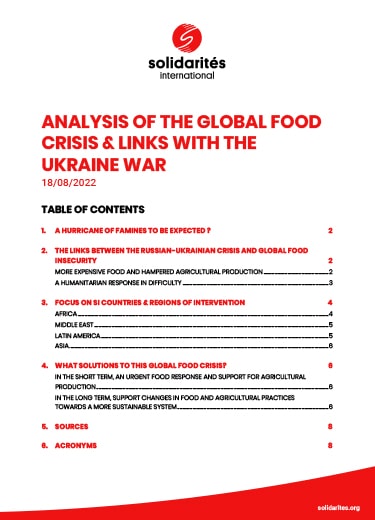
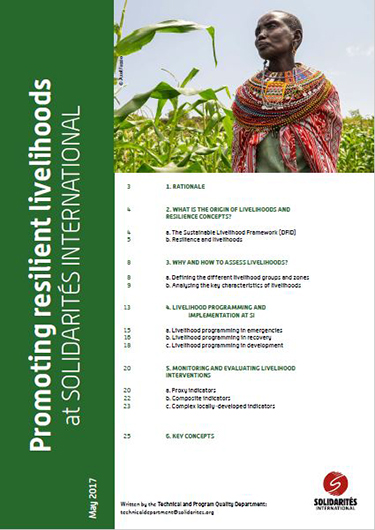
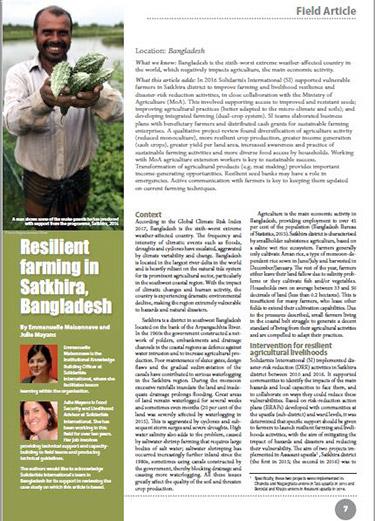
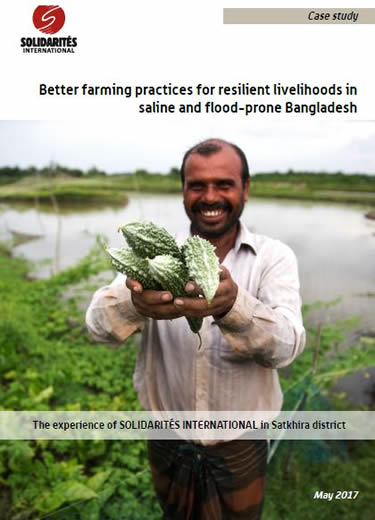
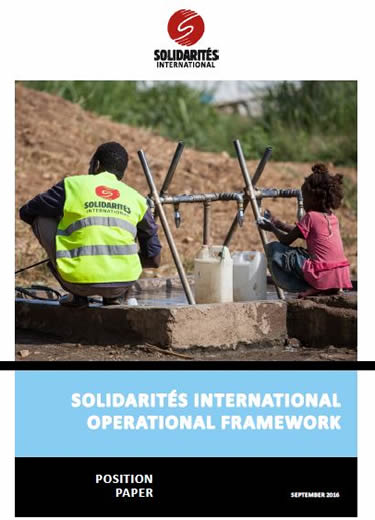
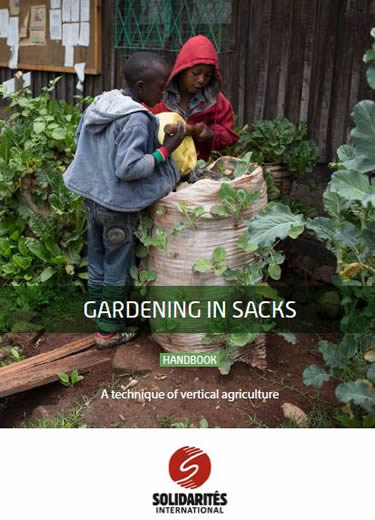
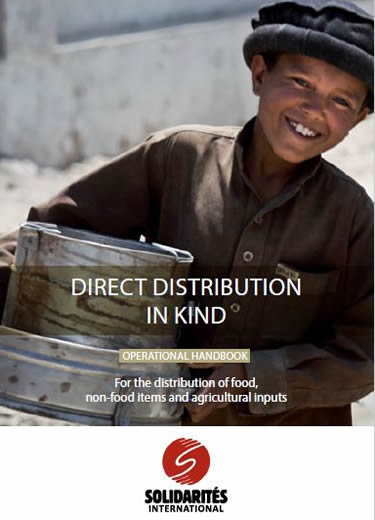
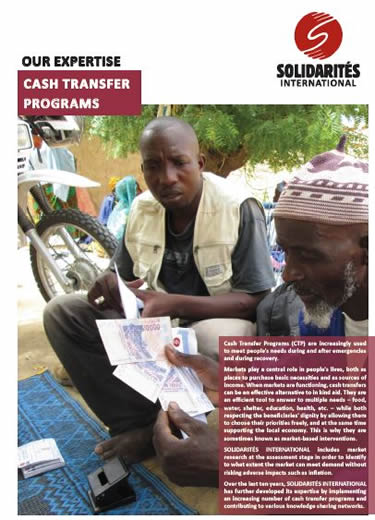
Vacancies
At head office
Worldwide
Internships
